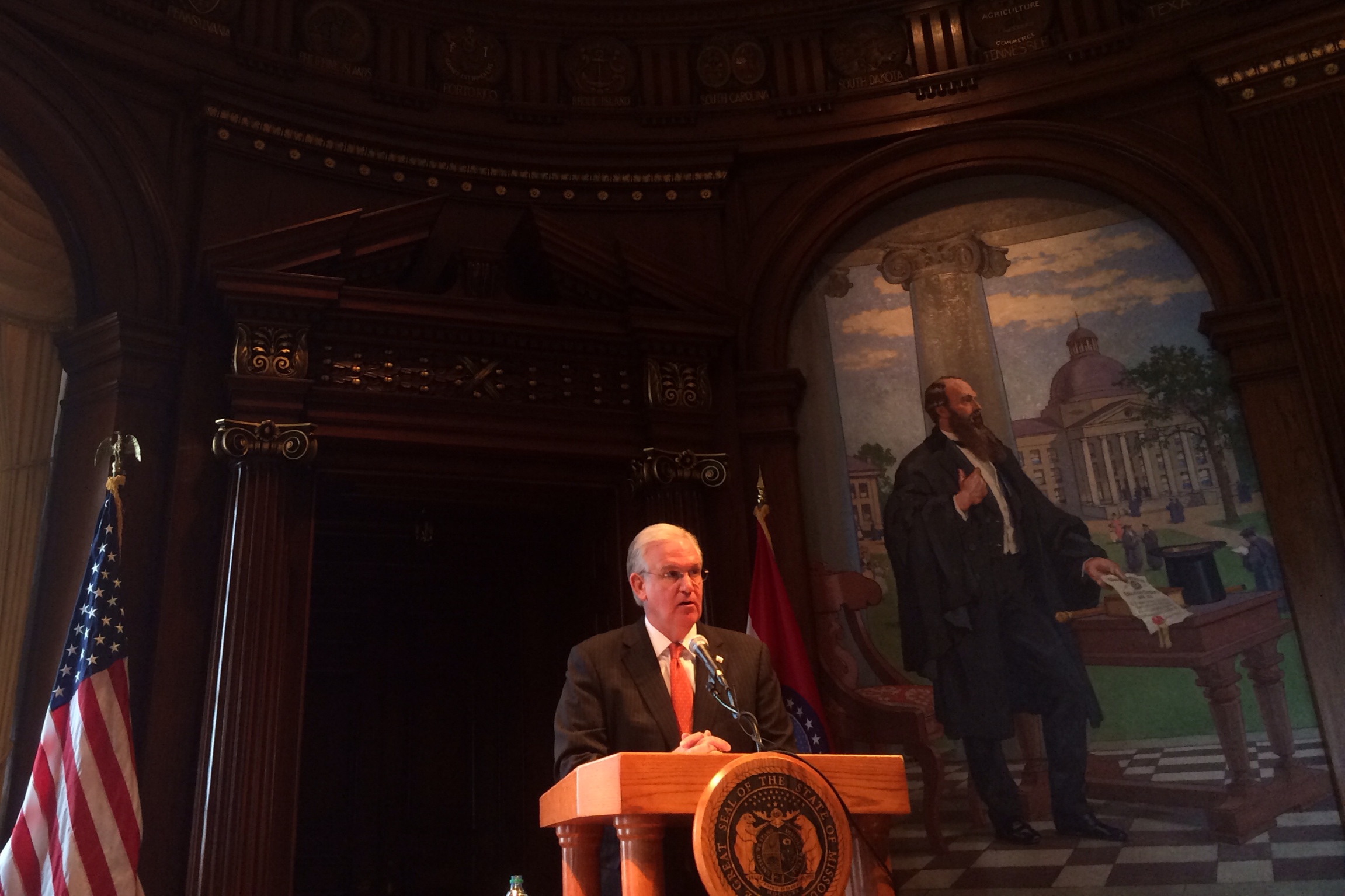
JEFFERSON CITY, Mo. – Gov. Jay Nixon said on Thursday that because the legislature’s Fiscal Year 2014 supplemental budget fell $22 million short of his funding request, education in Missouri will take a hit.
Speaking to reporters on Thursday, Nixon, a Democrat, said his administration was disappointed in the legislature for not approving all $44 million of their supplemental request. He said he would allocate the funding in such a way that four-year institutions and community colleges would take a $3.2 million hit in this year’s budget, and K-12 institutions would see a $15.6 million reduction.
“These are real cuts that will affect all Missouri students, even though there is sufficient general revenue available right now,” Nixon said. “As a result of the legislature’s actions, public education will be forced to take an avoidable and unnecessary $22 million cut for the current fiscal year.”
The shortfall was a result of reduced gaming and lottery revenue over the past fiscal year. Nixon said his administration had repeatedly communicated the shortfall to lawmakers. He pointed to letters sent to the legislature and that Budget Director Linda Luebbering sent to the Senate Appropriations Committee noting the full $44 million request.
Republicans noted on Thursday that a $22 million increase is still an increase for K-12 in 2014. They contend that Nixon has ove-budgeted for Fiscal Year 2015 (the legislature and governor’s office have not agreed to a consensus revenue figure), and that schools would rather have more money in 2015 than now, noting a $100 million increase currently being budgeted for next year.
Nixon said there was no time for him to veto the bill and have lawmakers return to the issue because lawmakers have just over a month left in session and are still working out the Fiscal Year 2015 budget. Nixon said the money should be restored in the Fiscal Year 2015 budget.
In addition to the education funding, the supplemental package included $2 million in funding for the struggling Normandy School District, $3 million for utility payment program for poor Missourians, and $69 million for Medicaid due to what some call a loophole in the Master Tobacco Settlement.
